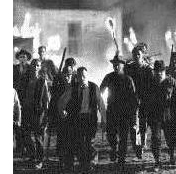 QUESTION: We are concerned about criminals living in our association and serving on our board. Is there anything we can do about it?
QUESTION: We are concerned about criminals living in our association and serving on our board. Is there anything we can do about it?
ANSWER: You raise a good topic. Several years ago, I drafted language for an association in Beverly Hills to ban felons from residing in their community. The membership passed it with lightning speed because convicted felon and accused murder Robert Durst had moved into their development.
Last year, HBO aired a documentary about him called “The Jinx, the Life and Deaths of Robert Durst.” During the filming, Durst took a break to use the bathroom where he muttered to himself (unaware his lapel mic was still live), “What the hell did I do? Killed them all, of course.”
Durst is believed to have murdered his wife Kathie, his neighbor Morris Black, and his friend Susan Berman. He is currently in jail in New Orleans on a weapons charge awaiting extradition to California for the murder of Susan Berman.
Robert Durst’s existing felony conviction is for evidence tampering, i.e., dismembering the body of Morris Black and throwing the parts into Galveston Bay. When limbs and torso washed ashore, the trail of blood led to Durst. At his trial, Durst described how he used a paring knife, two saws, and an axe to dismember his neighbor.
The Beverly Hills HOA was understandably alarmed and wanted Durst out of their association. In addition to being terrified, would they have to disclose to potential buyers that he lived in the development? If so, property values and sales could plummet.
I used the newly adopted CC&R amendment to force Robert Durst out of the community, so your question about prohibiting criminals is relevant.
Board of Directors. Barring felons from serving on boards is not uncommon (see Felons on Boards). However, a ban on “criminals” living in an association is a different matter. I will start with arrest records and move up from there.
Arrest History. Amending your CC&Rs to ban residents on the basis of their arrest history is too broad. Getting arrested does not make one a criminal. I have no doubt a court would strike down such a restriction as overbroad and unreasonable.
Criminal History. Also too broad is a prohibition of residents with a criminal conviction. It’s a bit unsettling but nearly one-third of the population in the United States has a criminal record of one kind or another. Most of them are misdemeanors. Someone who smoked pot or shoplifted 30 years ago as a teenager should not be barred from buying into an association–he/she does not represent a danger to their neighbors. HUD guidelines specifically address this issue.
HUD Guidelines. In April 2016, the U.S. Department of Housing and Urban Development (HUD) issued a guide on how to apply Fair Housing Act standards to the use of criminal histories by housing providers. (HUD – Criminal History.) Although an association is not a housing provider, it is often viewed as such by HUD and the courts. HUD deems denial of housing based on a generic criminal history as a violation of the Fair Housing Act. According to HUD’s Office of General Counsel:
[a] housing provider that imposes a blanket prohibition on any person with any conviction record–no matter when the conviction occurred, what the underlying conduct entailed, or what the convicted person has done since then–will be unable to meet this burden [that the restriction is legitimate and nondiscriminatory].
Felony Conviction. However, a restriction on felons is enforceable if done properly. HUD guidelines provide that:
A housing provider with a more tailored policy or practice that excludes individuals with only certain types of convictions must still prove that its policy is necessary to serve a “substantial, legitimate, nondiscriminatory interest.” To do this, a housing provider must show that its policy accurately distinguishes between criminal conduct that indicates a demonstrable risk to resident safety and/or property and criminal conduct that does not.
That means white collar felons and perjurers present a low risk to resident safety whereas a recently released violent criminal, arsonist, registered sex offender, or drug dealer could be deemed a threat.
Drug Dealers. Section 807(b)(4) of the Fair Housing Act specifically allows for denial of housing to someone convicted of the illegal manufacture or distribution of a controlled substance. The exception requires a conviction, not merely an arrest, and does not apply to other drug-related convictions, such as possession.
RECOMMENDATION. Associations can amend their governing documents to restrict certain types of criminals. If an association wants to amend their documents, boards should work with legal counsel to draft a provision that is narrowly tailored to prohibit those who represent a risk to the safety of residents or the safety of the association’s property.
Thank you to attorney Wayne Louvier in our Orange County office for researching this topic.



 QUESTION: Ours is a 60-unit HOA. One resident has served many years as a board member, president, and rule-enforcer. She helped newcomers and everyone with all manner of issues and problems. While president she oversaw the expenditure of hundreds of thousands of dollars to restore the property after years of neglect.
QUESTION: Ours is a 60-unit HOA. One resident has served many years as a board member, president, and rule-enforcer. She helped newcomers and everyone with all manner of issues and problems. While president she oversaw the expenditure of hundreds of thousands of dollars to restore the property after years of neglect.








